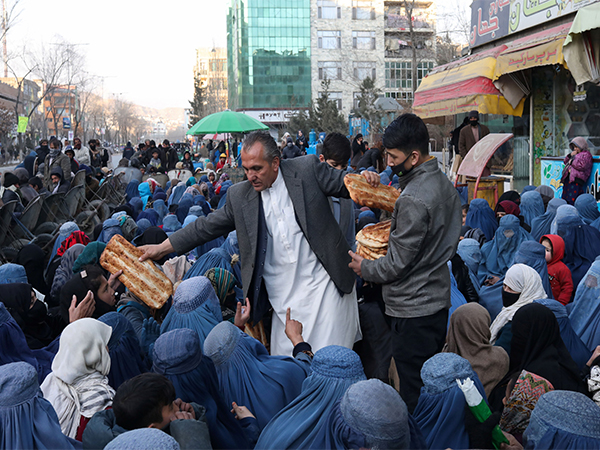Afghanistan Faces Escalating Hunger and Housing Crises Amid Global Call for Action
Hunger and housing crises in Afghanistan are rapidly worsening, with the World Food Programme (WFP) and UN-Habitat raising urgent funding appeals. The food crisis affects millions, while unsafe urban living conditions in Kabul highlight severe infrastructure and climate vulnerabilities, leading to a humanitarian emergency requiring immediate international intervention.

- Country:
- Afghanistan
The hunger crisis in Afghanistan is reaching critical levels, as the World Food Programme (WFP) announced a pressing need for $539 million over the next six months, according to Khaama Press. The agency emphasized that returning women and children are particularly vulnerable, facing severe consequences from escalating food insecurity.
As reported by Khaama Press, the WFP revealed a rapidly deteriorating situation, with Afghan families increasingly unable to afford basic food due to rampant poverty and economic turmoil. 'Two out of every three women heading households face food scarcity,' the WFP noted, underscoring the critical need for aid as millions endure hardship.
The organisation highlighted that 3.5 million Afghan children are suffering from malnutrition, worsening the humanitarian crisis. Khaama Press indicates that 10 million people now depend on humanitarian aid, placing Afghanistan among the most food insecure nations globally, demanding sustained international support to avert widespread hunger.
The UN-Habitat has also sounded the alarm over Kabul's dire housing issues, claiming over 40 percent of Afghanistan's urban population resides in the capital. Khaama Press reports that four out of five inhabitants live in perilous informal areas, lacking basic services, and facing severe climate threats.
Immediate measures are crucial to enhance climate resilience and rectify unsafe living conditions in Kabul, where most returnees reside in informal settlements lacking healthcare and sanitation. UN-Habitat warns that without urgent infrastructure and climate adaptation investments, Kabul's most vulnerable will remain trapped in cycles of deprivation and risk.
(With inputs from agencies.)










